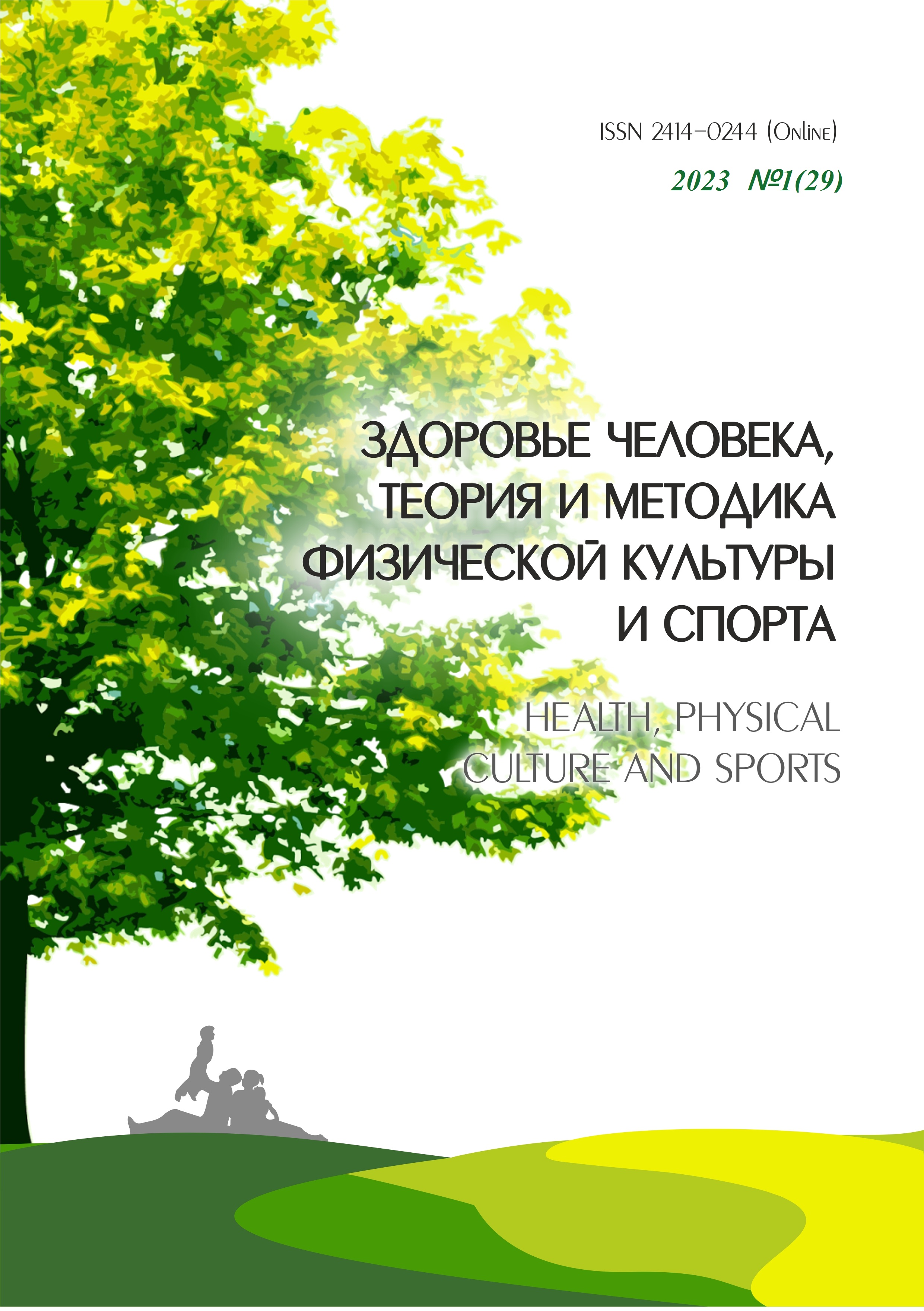DEVELOPMENT OF PHYSICAL POTENTIAL OF STUDENTS WITH DISABILITIES THROUGH BOARD AND OUTDOOR SPORTS GAMES
Abstract
Stimulating students with disabilities to engage in adaptive physical culture is oneof the main tasks facing university administrations, along with support in the educational space. Theexisting deep violations, the lack of proper attention on the part of physical education teachers toinclude these students in the process of physical education, predetermine the already well-establishedopinion among special students entering the university that their lot is only attending lecturesand writing essays. The article discusses the organization of the educational process for studentswith disabilities, with various nosological forms, engaged in adaptive sports games. The purposeof the study was to compare the indicators of gaming skills in the two study groups. The basis forthe activation of physical development was the board sports game Jaccolo. The study involved 48students divided into an experimental group (24 people) with disabilities and a control group — 24normotypic students. The average age is 20, 4±1,93. During two semesters, the respondents of the1st group were actively engaged in elective courses of Jaccolo, using the sites of the TSU AdaptiveSports Games club, and also performed at various integrated regional and city mass sports events.Students of the 2nd group were only familiarized with the rules and techniques of the game at masterclasses and demonstration performances. We didn't have much gaming practice. The developedcurriculum allowed to motivate students to innovative forms of adaptive physical culture and leisureactivities. An individual approach, with metered loads, tutoring and volunteer support, to studentsin need, contributed to achieving certain results. The control results showed an increase of 29% inthe experimental group, where students with disabilities purposefully improved their playing skills,confirming it at various competitions, achieving good individual and team results. NSI classes allowyou to expand the boundaries of social integration, to believe in your own capabilities, to be one team,which in the future will help to overcome difficult life situations
Downloads
References
игр : практическое пособие. Чита : ЗабГУ, 2021. 104 с.
Карпов В.Ю., Рысакова О. Г., Правдов Д.М., Разживин О.А. Эффективность самостоятельных занятий физическими упражнениями у студентов вуза в дистанционном формате // Теория
и практика физической культуры. 2022. №7. С. 38–40.
Киперман М.А., Беспалов Д. В., Киперман Я. В. Мониторинг состояния здоровья студентов с ОВЗ и инвалидностью Курской области, в рамках реализации проекта Молодежный центр
адаптивной физической культуры и спорта «Импульс», поддержанного Фондом президентских
грантов // Медико-биологические аспекты физической культуры и спорта : сборник статей студ.
науч.-практ. конф. Курск: Курский государственный университет, 2022. С. 21–25.
Козлов А.В., Козлова М.А., Славин Д.С. Техническая оценка измерения двигательной активности студентов с ограниченными возможностями здоровья на основе настольных спортивных
игр // Бизнес. Образование. Право. 2021. №3 (56). С. 378–381.
Кохан С.Т., Власова С.В. Влияние настольных спортивных игр на формирование мотивации к физической активности студенческой молодежи // Ученые записки ЗабГУ. 2022. Т. 17. №4.
С. 140–149. DOI: 10.21209/2658–7114–2022–17–4–140–149.
Кудинова В.А., Карпов В.Ю., Болдов А.С., Маринина Н.Н. Повышение качества учебного
процесса по физической культуре на основе обучения технике двигательных действий // Теория
и практика физической культуры. 2021. №7. С. 61–63.
Мелентьева Н.Н., Лопухина А.С., Сверкунова Н.С. Настольные спортивные игры: возможности в адаптивном физическом воспитании студентов с ограниченными возможностями здоровья // Физическая культура. Спорт. Туризм. Двигательная рекреация. 2022. Т. 7, №2. С. 93–98.
Пономарева С.В. Вопросы реализации инклюзивного образования детей с ограниченными
возможностями здоровья и пути их решения в сфере физической культуры и спорта // Наука в современном мире : матер. Междунар. науч.-практ. конф. Нефтекамск : Мир науки, 2021. С. 602–607.
Рекунова М.В., Колпакова Е.М. Адаптивная физическая культура в вузе // Материалы X Международной студенческой научной конференции «Студенческий научный форум». URL: https://
scienceforum.ru/2018/article/2018002052 (дата обращения: 13.03.2023).
Handrianto C., Rasool S., Rahman M.A., Musta'in, Ilhami A. Teachers' Self-Efficacy and Classroom
Management in Community Learning Centre (CLC) Sarawak // Spektrum: Jurnal Pendidikan Luar
Sekolah (PLS), 2021, Vol. 9, N2, pp. 154–163.
Morningstar M.E., Lombardi A., Fowler C.H., Test D.W. A College and Career Readiness Framework
for Secondary Students with Disabilities. Career Development and Transition for Exceptional Individuals,
2017. N 40 (2). Pp. 79–91.
Copyright (c) 2023 Health, physical culture and sports

This work is licensed under a Creative Commons Attribution-NonCommercial 4.0 International License.
An author should not normally publish manuscripts describing essentially the same research in multiple journals or publication venues. Such redundant publication is generally considered to constitute unethical publishing behavior, and if discovered may result in a manuscript under consideration being rejected, or a published article being retracted.
Authors of manuscripts reporting on original research should present an accurate account of the work performed, accompanied by an objective discussion of its significance. Underlying data should be represented accurately in the manuscript. The manuscript should contain sufficient detail and references to permit others to replicate the work. The fabrication of results and the making of fraudulent or knowingly inaccurate statements constitute unethical behavior and may be cause for rejection or retraction of a manuscript or published article.





